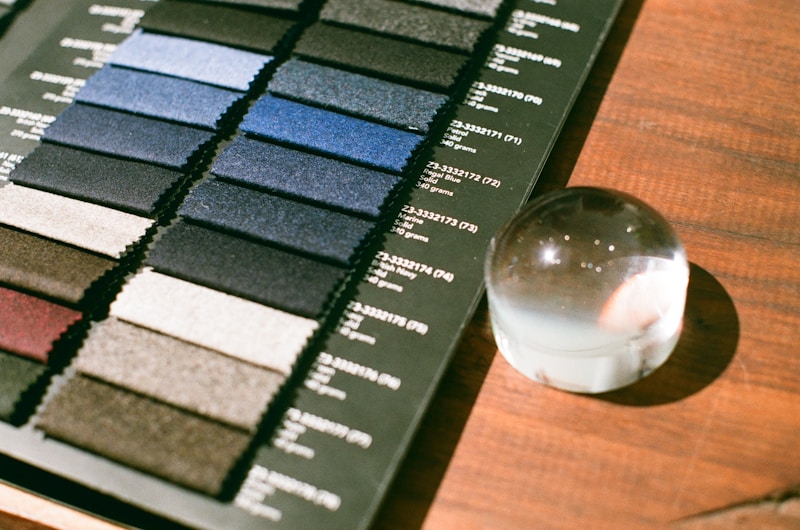Bespoke Craftsmanship: Understanding the Art of Custom-Made Products
What is Bespoke Craftsmanship?
Bespoke craftsmanship refers to the meticulous art of creating custom-made products, tailored specifically to meet the individual needs and preferences of a client. This form of craftsmanship goes beyond mass production, offering a personalized experience that emphasizes quality, attention to detail, and exclusive designs. In this article, we will delve into the intricacies of bespoke craftsmanship, including its history, types, benefits, and how it influences various industries.
History of Bespoke Craftsmanship
The term “bespoke” originated in the United Kingdom, traditionally linked to the tailoring industry. It is said to have been derived from the phrase "to be spoken for," indicating that materials were specifically reserved for a client's order. Historically, bespoke tailoring catered to the elite class, allowing them to showcase their wealth and invoke a sense of individuality through clothing. Over the years, the principles of bespoke craftsmanship have expanded into various sectors, including furniture, shoes, and even technology.
The Characteristics of Bespoke Craftsmanship
Here are some fundamental characteristics that define bespoke craftsmanship:
| 1. Customization | Every piece is tailored to meet the client’s specifications, from measurements to materials. |
| 2. Quality Materials | Use of premium-grade materials is paramount, ensuring durability and aesthetic appeal. |
| 3. Skilled Artisanship | Crafted by expert artisans, bespoke products are often created using traditional techniques. |
| 4. Attention to Detail | Every aspect, no matter how small, is meticulously crafted to ensure perfection. |
| 5. Personal Connection | Clients engage in the creation process, forming a bond between the maker and the product. |
Types of Bespoke Craftsmanship
Bespoke craftsmanship can be found in various industries, each with its unique processes and specialties. Here are some prominent examples:
1. Bespoke Tailoring
The most recognized form of bespoke craftsmanship, bespoke tailoring involves creating tailored suits and garments specifically designed for an individual. A tailor takes detailed measurements, considers the client's preferences, and guides them through fabric and style choices to craft a unique piece.

2. Bespoke Furniture
Bespoke furniture is custom-made to fit the client’s requirements and space specifications. This process often includes consultations to understand the space and preferences, followed by the creation of unique pieces that fit seamlessly into a home or office.
3. Bespoke Footwear
Similar to tailoring, bespoke footwear involves measuring the client's feet and creating shoes that offer ultimate comfort and style. The process often includes selecting materials and designs that reflect the wearer’s personal taste.
4. Bespoke Jewelry
Bespoke jewelry allows clients to create unique pieces that hold special significance. From engagement rings to custom necklaces, the process involves working closely with the jeweler to select stones, metals, and designs that are meaningful to the client.
5. Bespoke Technology
In the tech sector, bespoke craftsmanship translates to custom-built computers or software solutions designed to meet specific needs. Companies and individuals can work with experts to develop systems that cater directly to their operational requirements.
Benefits of Choosing Bespoke Craftsmanship
Opting for bespoke craftsmanship comes with numerous advantages:
- Uniqueness: Each piece is one-of-a-kind, allowing individuals to express their personal style and preferences.
- Quality Assurance: Bespoke products typically undergo rigorous quality checks, ensuring a superior final product.
- Enhanced Comfort: Custom-made items, particularly in tailoring and footwear, are designed for optimal fit and comfort.
- Lasting Value: Bespoke items often retain character and value over time, making them luxurious investments.
Challenges in Bespoke Craftsmanship
While bespoke craftsmanship offers plenty of perks, there are also challenges that can arise:
- Cost: Custom-made products typically come at a higher price point due to labor and materials, which may not be suitable for all budgets.
- Time Consumption: The bespoke process can require significant time, as each piece is made meticulously, often taking weeks or even months to complete.
- Expectations vs. Reality: There’s always a risk that the final product may not meet the client’s expectations, and managing this aspect can be tricky.
Popular Questions about Bespoke Craftsmanship
As interest in bespoke craftsmanship grows, so too does the number of questions surrounding it. Here are some commonly asked questions:
1. How long does it take to create a bespoke item?
The time required for bespoke craftsmanship varies by item and complexity, but it often ranges from a few weeks to several months.
2. What materials are typically used in bespoke products?
Quality materials like natural fibers, hardwoods, and precious metals are commonly used, ensuring durability and aesthetic appeal.
3. Is bespoke craftsmanship always expensive?
While bespoke items do involve higher costs reflecting quality and customization, pricing can vary significantly based on the product and materials chosen.
4. Can the bespoke process accommodate specific requests?
Absolutely! The essence of bespoke craftsmanship is its ability to cater to individual requests, whether for design, material, or functionality.
The Future of Bespoke Craftsmanship
As society shifts towards personalized products and experiences, the demand for bespoke craftsmanship is likely to grow. Brands are beginning to embrace more customization options, often integrating technology to enhance the user experience in the bespoke process. With advancements in 3D printing and virtual design tools, the future of bespoke craftsmanship appears bright.
Conclusion
Bespoke craftsmanship is not just about creating products; it’s an art form that encapsulates individuality, quality, and personal connection. Whether related to fashion, home decor, or advanced technology, bespoke craftsmanship stands out as a symbol of exclusivity and exceptional quality. Always consider your priorities, budget, and preferences when venturing into bespoke craftsmanship, ensuring that your investment reflects your unique style and needs.